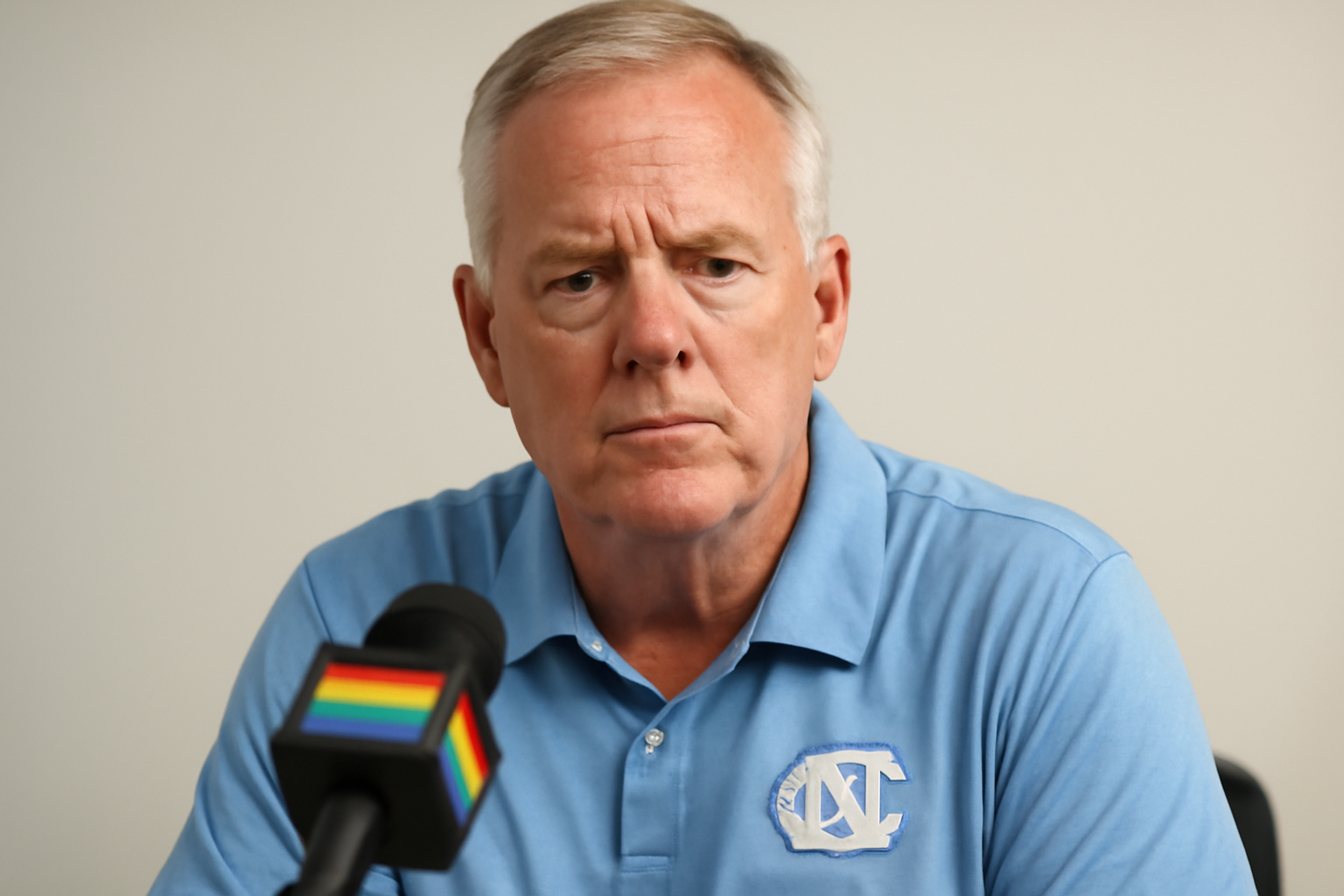
Controversial Coaching Hire Prompts Discussion on Accountability and Redemption
Mike Priefer, a well-known figure in the NFL, has recently transitioned from the professional league to the college level, taking on a new role with the UNC Tar Heels football team. This move sees him joining the esteemed head coach Bill Belichick, along with a cadre of former NFL coaches. However, Priefer's appointment has sparked significant controversy and reflection, not due to his coaching abilities, but rather his past remarks and the broader implications for sports and society.
While serving as the special teams coordinator for the Minnesota Vikings, Priefer reportedly made deeply disturbing anti-gay comments that reverberated through the team and the league. These remarks were brought to light by former Vikings punter Chris Kluwe, who recounted his experience in 2014, detailing a specific incident that allegedly occurred in 2012.
Kluwe recalled a meeting where Priefer, using a particularly harsh tone, suggested an appalling scenario of rounding up gay people to be placed on an island and subjected to nuclear bombing. This statement, as per Kluwe's account, led to an investigation by the Vikings, resulting in Priefer's suspension for three games.
Since that suspension, Priefer continued his career in the NFL as the special teams coordinator for the Cleveland Browns, before the current transition to UNC. However, the lingering question remains: how does one atone for such hurtful comments, and what does it mean for someone to truly make amends?
Outsports, a prominent voice concerning LGBTQ issues in sports, has highlighted a lack of visible effort by Priefer to address or apologize for his past remarks. Despite the harshness of his words, no public apology or genuine attempt at reconciliation seems to have been made.
This oversight contrasts sharply against the broader landscape of societal change. At the time Priefer allegedly made these comments, the legal and social status of LGBTQ individuals in the United States was markedly different. Same-sex marriage was not federally recognized, and openly gay players like Michael Sam and Carl Nassib had yet to make their groundbreaking public announcements.
The hiring of a coach with such a controversial history raises important questions about redemption, forgiveness, and accountability in sports. If Priefer had directed his comments towards another marginalized group, the response might have been unequivocal condemnation. However, the relative invisibility of out gay individuals within the NFL may contribute to a more muted reaction.
A poignant comparison can be drawn: had Priefer suggested a similar fate for people of another race, his career prospects might have looked vastly different. The potential acceptance of such comments towards the LGBTQ community, implicitly or explicitly, underscores the need for continued advocacy and visibility.
For the sports community and beyond, this situation serves as a moment for introspection. It prompts everyone involved to consider how they engage with issues of diversity, equity, and inclusion. The path to redemption should ideally involve acknowledgment of past wrongs and a commitment to positive change.
While Priefer's professional journey continues at UNC, the broader implications of his past remarks remain a subject for discussion. The sports world, including teams, coaches, and players, must grapple with the balance between offering second chances and ensuring accountability.
In the evolving landscape of sports, where inclusivity and respect are increasingly prioritized, the need for sincere apologies and meaningful change becomes ever more critical. As individuals and organizations, there is a collective responsibility to ensure that all voices are heard and respected, fostering an environment of true inclusivity.
Priefer’s appointment at UNC is more than just a career move; it is a test case for the power of apology and the possibility of redemption. It challenges both the sports community and society at large to reflect on the values they hold and the future they wish to create.
In this critical moment, let us hope that all involved choose to lean into empathy, understanding, and growth, paving the way for a more inclusive world for everyone.
Related Posts
Exciting New Images Released for '100 Nights of Hero': A Captivating Historical Fantasy
Unpacking '100 Nights Of Hero': A First Look If you're a fan who loves getting lost in historical fantasy, get ready because new images from *100 Nights Of Hero* have just dropped. This much-anticipated film stars Nicholas Galitzine, Emma Corrine, and Charli XCX, and brings Isabel Greenberg's beloved graphic novel storybook magic onto screens. Under Julia Jackman‘s masterful direction, *100 Ni [...]
Mary Trump Critiques Her Uncle's Use of Religion for Political Gain
Mary Trump, a clinical psychologist and openly lesbian, has been quite vocal about her criticisms regarding her uncle, former President Donald Trump. Recently, she took issue with how he uses religion as a means, in her view, simply as a tool, especially evident when discussing his decision on a military strike against Iran. In her blog, she expressed concerns that invoking God was less about fait [...]
The Enduring Journey from Darkness to Light: A Story of Resilience
One key part about taking charge in life? Defining yourself instead being shaped by someone else. It's all about living true and breaking away from those social norms dictating who "deserves" rights based on identity or fitting in with mainstream ideas. Often, society creates these isolating "closets" that keep people who dare defy these norms hidden and unsafe. History shows how religion's been [...]